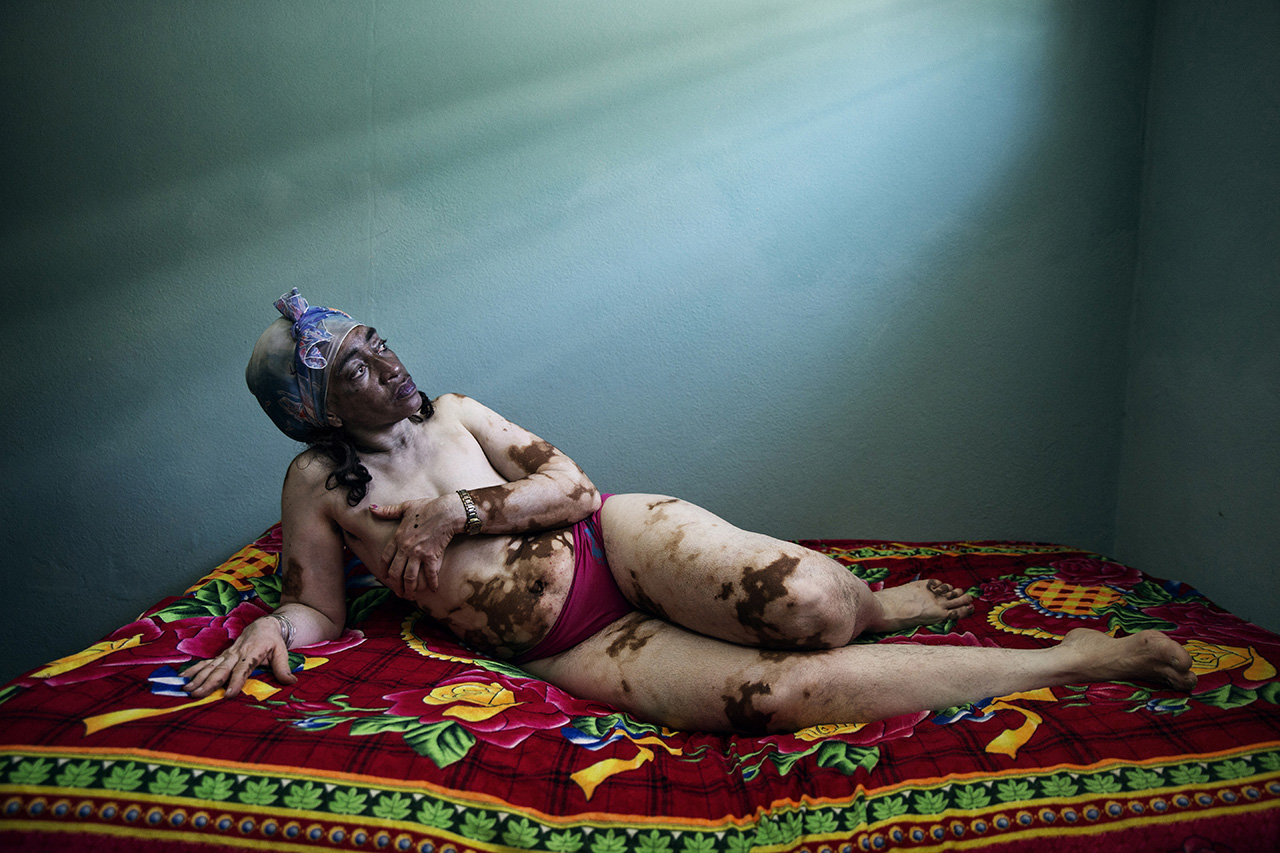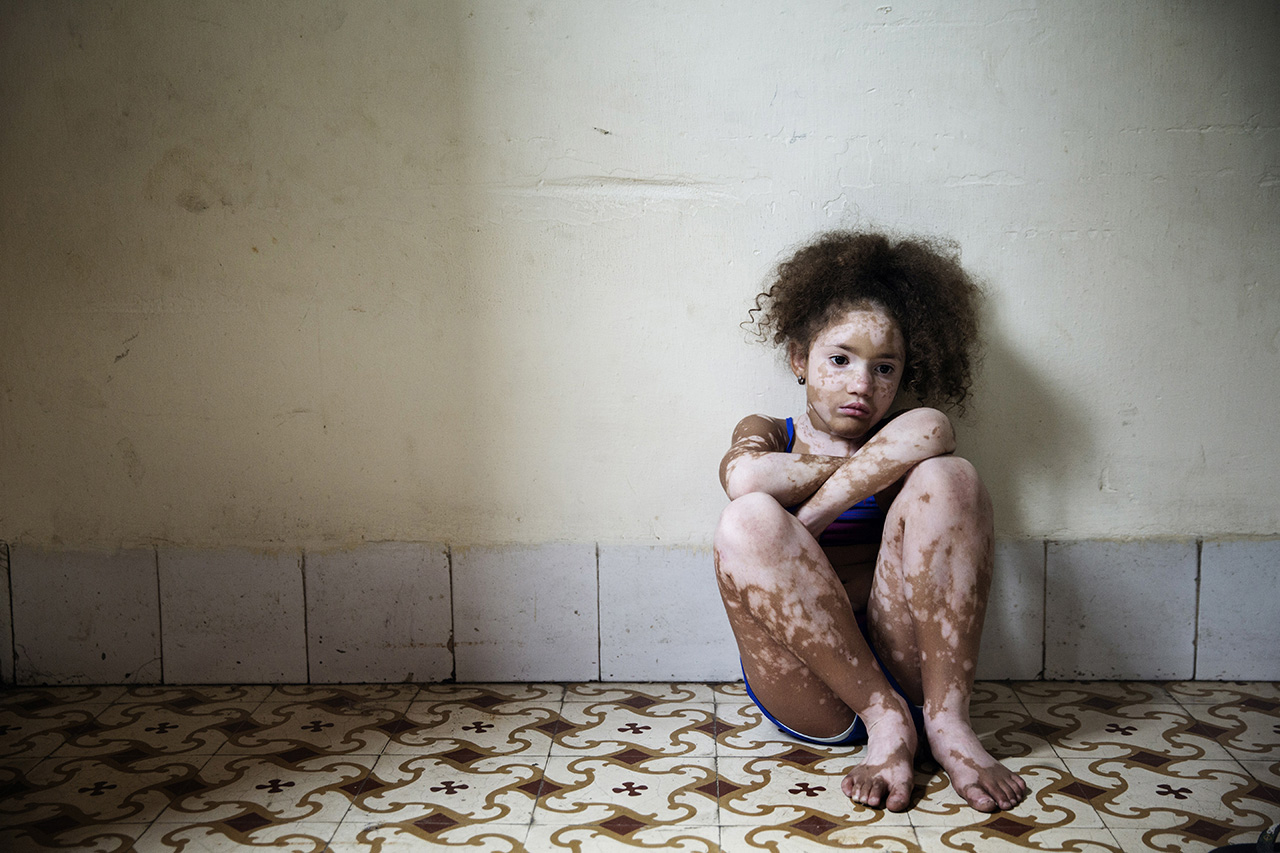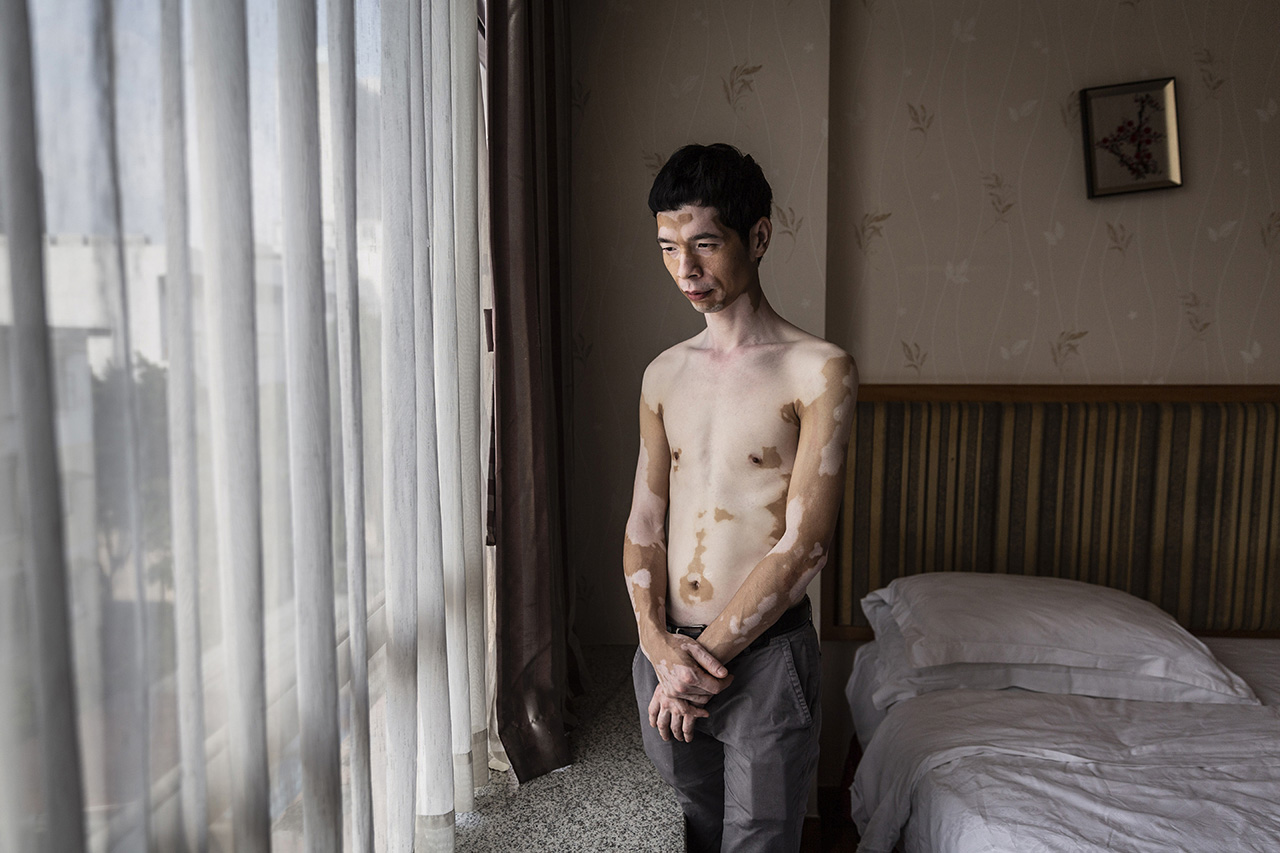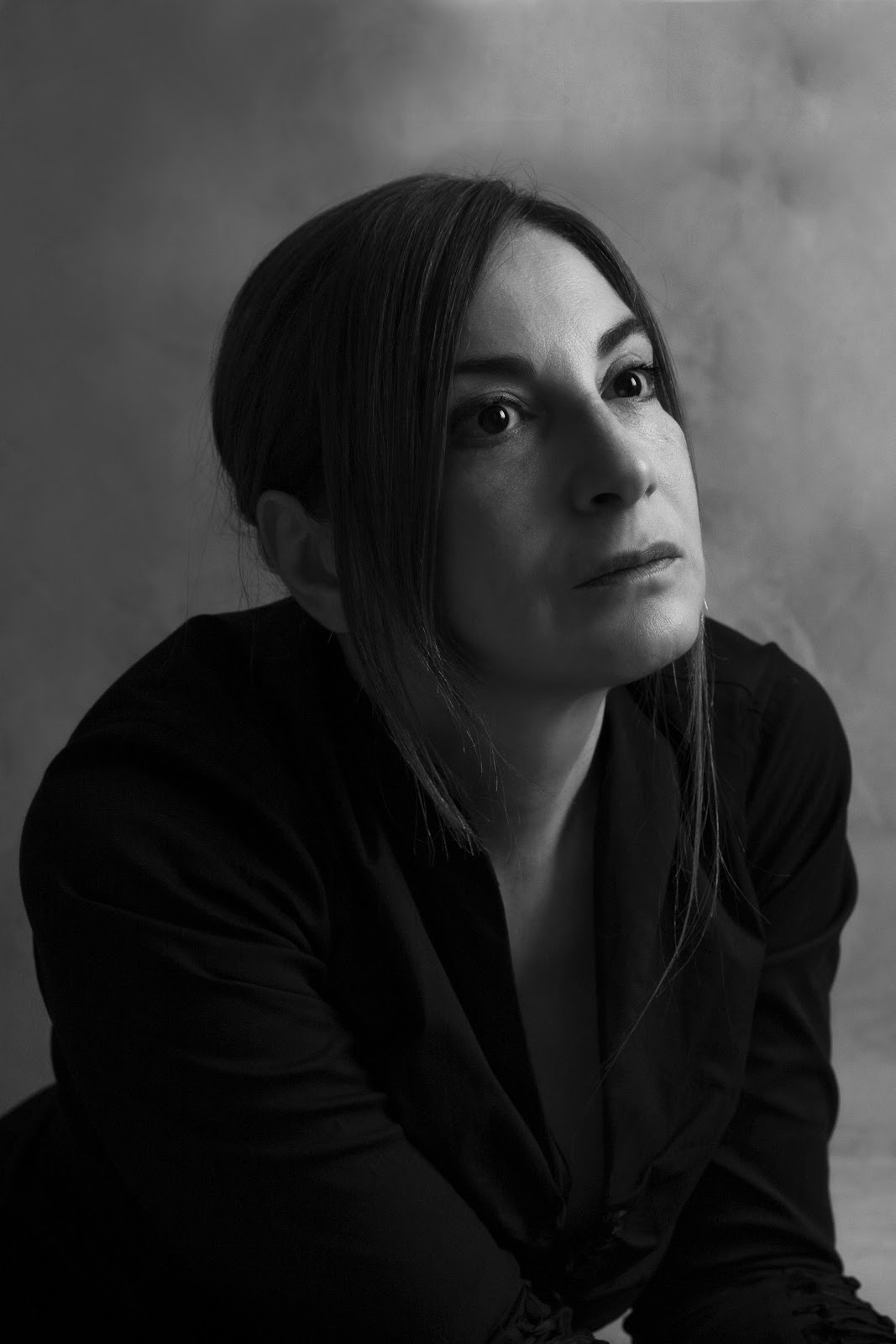This work is composed of a series of environmental portraits that allows us to enter a private dimension, one which can be painful and that is, too often, rejected.
Vitiligo is a chronic condition characterized by depigmented patches of skin due to the loss of melanocytes. It affects 1 to 2% of the world’s population regardless of age, sex or ethnic background. While the exact causes of the disease remain unknown, available treatments range from creams and lotions to phototherapy and to pills. They may help reduce the visibility of vitiligo, but no definite cure exists at the moment.
The photographer met and took portraits of people across five countries: India, China, Denmark, Cuba and Italy.
The first three countries are the ones with the highest percentage of vitiligo, like in the Gujarat region, India, where it reaches 9%. Cuba deserves attention because of a treatment product based on human placenta extraction. Italy because several people in her family are affected by Vitiligo.
Vitiligo inevitably raises questions about beauty, identity, and change. The emotional effects of stigmatization can be devastating – low self-esteem, anxiety, or even depression. In other words, the impact of vitiligo goes way beyond the skin. Sufferers undergo a change that is physical as well as psychological, because the condition can negatively affect their social interactions, their romantic and sexual relationships, and their career.
Rosa strongly believes that more can and must be done for all people living with this condition, who, in most cases, just want to be cured and feel normal again. This partly explains why one of the guiding principles for this project has been to capture an authentic image of the subjects, all of whom overcame their biggest hurdle – the gaze and judgment of others – and, with great courage and humility, showed themselves as they are, restoring to their bodies the personal dignity they had lost. It was not easy for them, but by doing so they have demonstrated an ability to accept themselves and their diversity.
Photo copyright: © Rosa Mariniello




